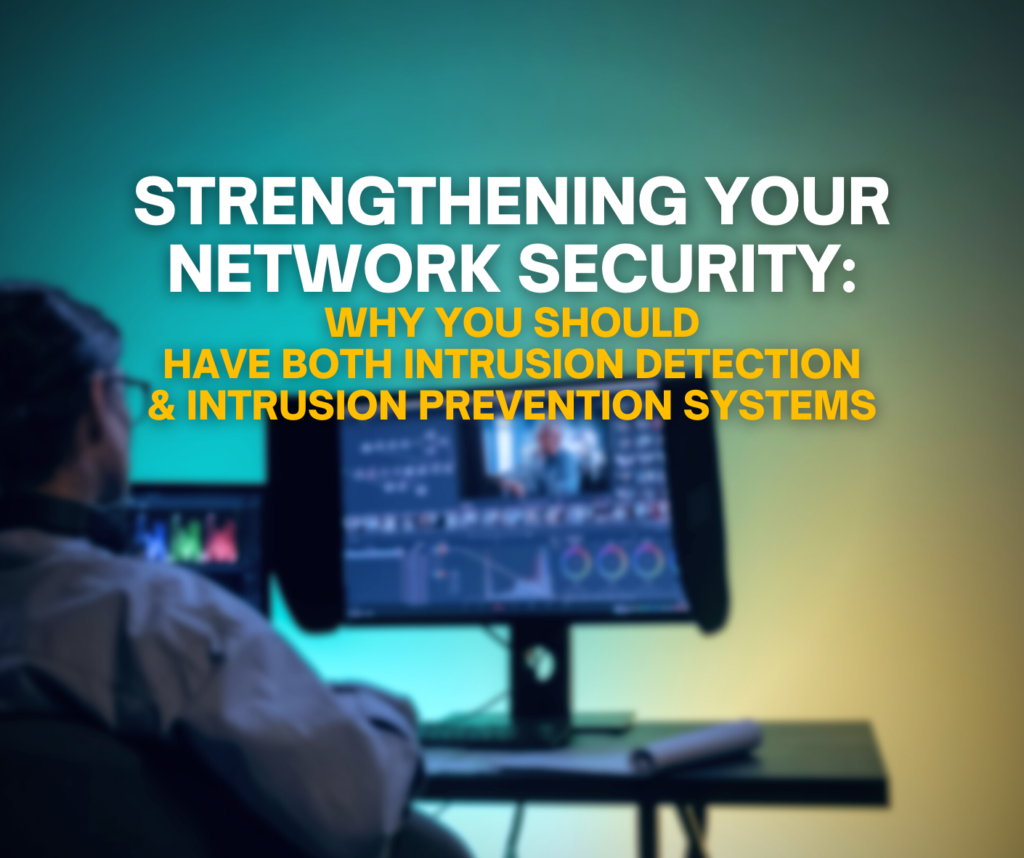With the increasing prevalence of cyber threats, organizations must prioritize network security to safeguard sensitive data and mitigate potential risks. In this blog post, we will explore two crucial components of network defense: Intrusion Detection Systems (IDS) and Intrusion Prevention Systems (IPS). By incorporating these systems into your network infrastructure, you can enhance your organization’s ability to detect and prevent cyber intrusions, ensuring the safety of your valuable data.
Let’s first understand the benefits of having an Intrusion Detection System (IDS). An IDS, available in hardware and software forms, acts as a vigilant sentry, continuously monitoring network traffic for abnormal patterns or suspicious activities. One of the primary methods employed by an IDS is the identification of signatures in incoming packets. Typically associated with known malicious activities, these signatures help the system differentiate between legitimate and potentially harmful traffic. By leveraging sensors and detection engines, an IDS maintains logs of events and establishes a database for analysis and decision-making. With its policy-driven nature, an IDS aligns with your organization’s security policies and procedures, effectively preventing known attacks from penetrating your network.
Next, let’s review the added role of the Intrusion Prevention System (IPS). Complementing the IDS, an Intrusion Prevention System (IPS) offers an additional layer of protection by taking proactive measures against detected intrusions. While an IDS focuses on detection and logging, an IPS takes a more aggressive approach. Upon detecting an intrusion, an IPS raises alarms, drops or rejects identified packets, and actively monitors and blocks traffic from specific IP addresses associated with suspicious activities. For comprehensive protection, integrate a Next-Generation IPS with your existing firewall and have robust antivirus software to effectively manage traffic flow and inspect illegal or unwanted behavior. This multi-faceted approach ensures a vital defense mechanism regardless of your company’s size.
We live in times where the rising need for network security is a must. The prevalence of cyber threats is a grave concern for businesses worldwide. Recent reports, such as Sophos’ “2023 Active Adversary Report for Business Leaders” and “The State of Ransomware 2023,” highlight the increasing sophistication of cybercriminals and the alarming rise in data breaches and ransomware attacks. In India alone, 73% of surveyed organizations reported falling victim to ransomware. Such statistics emphasize the criticality of investing in robust network security measures, including IDS and IPS, to safeguard your organization’s sensitive data.

Incorporating both IDS and IPS into your network infrastructure offers several advantages:
a. Early Threat Detection: IDS and IPS systems can identify and respond to potential threats swiftly, minimizing the impact of intrusions and preventing data loss.
b. Enhanced Incident Response: The detailed logs and event data provided by IDS and IPS enable your organization to investigate incidents thoroughly and respond effectively to mitigate any ongoing risks.
c. Proactive Defense: With IPS actively blocking and dropping malicious packets, your network is better protected against known attack vectors and emerging threats.
d. Compliance and Regulation: Many industry-specific regulations, such as HIPAA or GDPR, require organizations to implement robust security measures. IDS and IPS solutions contribute significantly to meeting these compliance standards.
As cybercriminals evolve their tactics, organizations must adapt their security strategies accordingly. By implementing Intrusion Detection Systems (IDS) and Intrusion Prevention Systems (IPS), you fortify your network’s defenses and improve your ability to detect and prevent cyber intrusions. Be proactive in securing your valuable data and ensure the long-term success of your organization in an increasingly digital world.
Sources: Sophos’ “2023 Active Adversary Report for Business Leaders” and “The State of Ransomware 2023”
Full-Stack IT Services: Infinavate Consultancy Services has a 20 year history as a national, boutique and Certified Minority Owned IT Solutions and Consulting Firm. Our core business offerings include business process automation, digital transformation, and cybersecurity fortification.

“We asked for specific skill sets and we got it [from Infinavate]. We required a high degree of acumen that we had a hard time finding resources for.” – CSL Plasma

